When My Husband and I Split, His Family Cut Me Off Overnight
The day my husband walked out, I thought the world would stop spinning. But it didn't. The children still needed breakfast, the taxi still honked outside, and the kettle still whistled on the stove. Life, as cruel as it was, moved on.

Source: Getty Images
What shattered me most wasn't that Tumelo left but how his family, the very people who once called me "our daughter," vanished as though I never existed.
I waited for a call from Tumelo’s mother, or even a text from Khanya, his sister. Nothing came. For twelve years, I had sat at their table, shared their laughter, and carried their grandchildren on my back. Now, I was a ghost to them.
When I called to ask if someone could help me watch the children while I went to work, Tumelo’s mother said softly, "Hmm, Onalerona, you know we are all busy these days."
That was the moment I knew — I had never truly been family.
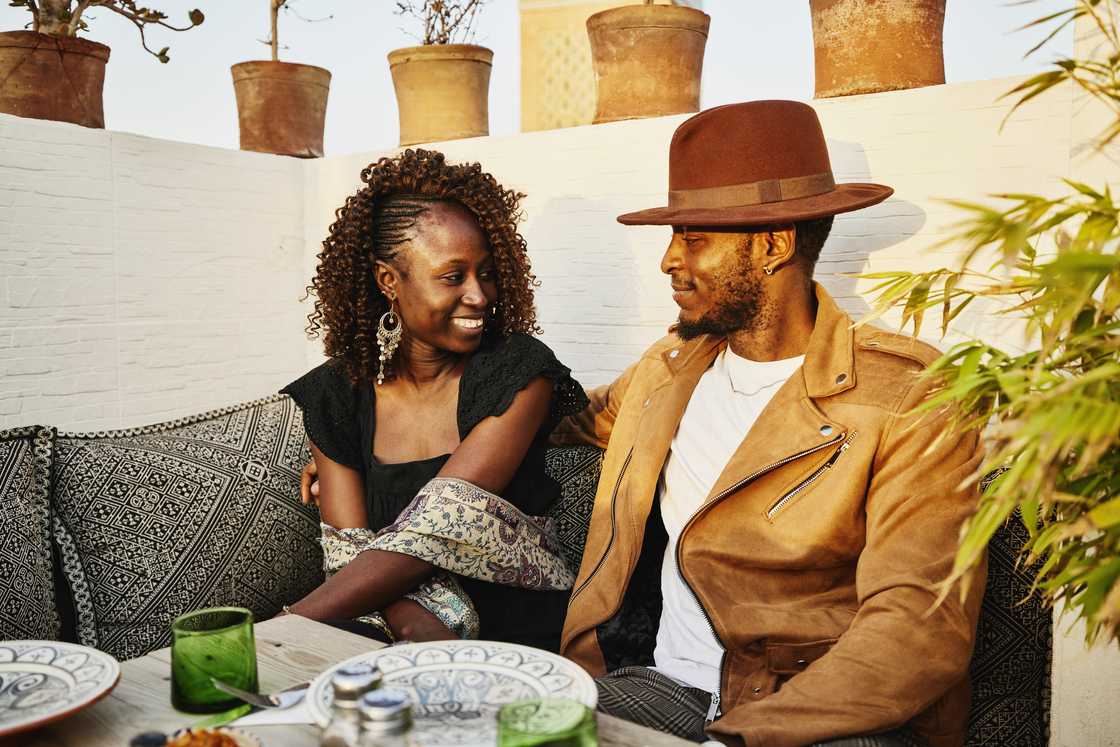
Source: Getty Images
I met Tumelo twelve years ago at a friend's wedding in Durban. He was tall, soft-spoken, and carried himself with a quiet confidence that drew people to him. I had recently moved to South Africa from Namibia, where my family still lived. I was new, lonely, and trying to find my footing in a country that wasn't yet home.
When Tumelo smiled at me across the wedding hall, something in me melted. We talked for hours about everything — work, food, music. He made me laugh, and when I mentioned how much I missed umfino, he promised to find me a place that sold Namibian food in Johannesburg.
He never did, but he learned how to cook it for me. That was Tumelo — thoughtful, patient, and kind.

Source: Getty Images
In those early days, I remember thinking how strange it was to feel seen in a city where I had felt invisible for months. Johannesburg was kind but busy, and people were always in a hurry.

Read also
He Vanished The Day After I kept The Baby — Two Years Later He Arrives as My Sister’s Boyfriend
But Tumelo slowed down for me. He listened. He asked questions about my childhood, my parents back in Gqeberha, even my dreams. He made the unfamiliar streets of South Africa feel like home.
When he took me to meet his family for the first time, I was nervous. His mother, Tumelo’s mother, welcomed me with open arms and a smile that stretched wide, offering me beef stew and vetkoek before I'd even sat down.
His sister, Khanya, teased him, calling him "our lover boy." It all felt warm and genuine. That evening, as we sat under the stoep lights, I believed I had found not just a man, but a family.

Source: Getty Images
When we got married six years later, his family embraced me, or at least, that's what I believed at the time. They called me "our Onalerona", and his mother hugged me tightly on our wedding day, whispering, "You are one of us now."
But sometimes, even the warmest embrace hides coldness underneath.
At family gatherings, I noticed little things. When Tumelo’s mother served food, she served her children first, then her daughters-in-law — except me. She would laugh and say, "Ah, Onalerona won't mind if there wasn't enough meat. She's used to small food where she comes from." Everyone laughed, and I laughed too, because what else could I do?
There were jokes about my accent, cooking, and dressing. "You foreigners and your flashy clothes," Khanya would tease.
Tumelo always told me I was overreacting. "You know my family," he'd say. "They joke like that. You're too sensitive."
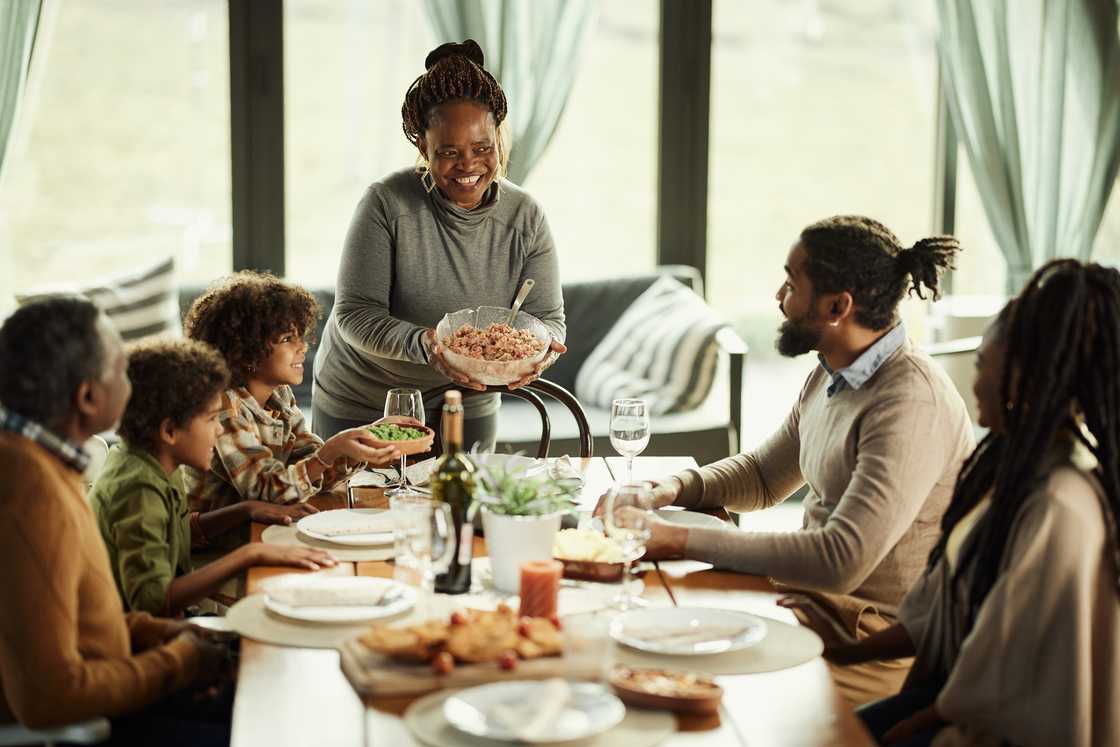
Source: UGC
So I tried to believe him. I told myself love would make me belong.
Three years ago, Tumelo's elder brother, Kagiso, separated from his wife, Nosipho. It was messy — Nosipho moved out with their three children, and for months, everyone was heartbroken.
But what struck me most was how united the family was. Tumelo’s mother visited Nosipho weekly, bringing food and helping her with the kids. Khanya organised a family meeting to pray for reconciliation. Even Tumelo drove across town to help fix things in Nosipho's new apartment.
Six months later, Kagiso and Nosipho got back together. The family celebrated with a small Thanksgiving dinner. Tumelo’s mother danced that night, saying, "We never abandon our own."
I smiled, clapping with the rest, even though something in me stung.
I wasn't sure why, but deep down, I wondered — would they say the same for me?

Source: Getty Images
It started small. Tumelo began staying late at work. He said the company had new projects, but I noticed how distant he'd become. When I asked if everything was okay, he'd sigh and say, "Not now, Onalerona. I'm tired."
We often argued about money, his absences, and how alone I felt, even when he was home.
One night, as the kids slept, I confronted him. "Are we okay, Tumelo? You've changed."
He looked at me for a long time before saying, "Maybe I'm just tired of always being accused."
It wasn't an answer, but it was all I got.
Months passed like that. The silence between us grew so heavy that even the children felt it. Little Botlhale asked one night, "Mommy, why doesn't Daddy laugh anymore?" I told her he was just tired, but my heart ached with fear.

Source: Getty Images
There were days when we barely spoke, passing each other like strangers in our own home. I'd wake up early to pack his lunch, hoping the gesture would soften the wall between us, but he'd leave without saying thank you.

Read also
Langa Mavuso reveals how his partner Chef Lentswe Bhengu spent his last day before passing away
When he came home, I'd pretend to be asleep to avoid another night of cold silence. I used to think love could survive anything, but I was learning that indifference was far deadlier than anger.
One evening, I went through his laundry and found a movie ticket stub in his pocket. The date was from a night he'd told me he was working late. I didn't ask him about it. I simply folded it into my palm, feeling my stomach twist. It wasn't proof of betrayal — maybe just proof that I no longer knew the man I shared a bed with.

Source: Getty Images
Then one Saturday morning, Tumelo packed a small bag and said he was leaving "for some space."
"Space?" I asked, my voice trembling. "You're leaving your family?"
He looked away. "It's just for now, Onalerona. I need to think."
And just like that, he walked out.
I waited for his family to check on me, to check on the children. I told myself, They will come. They always do.
But a week passed. Then two. Nobody came.
When I called Tumelo’s mother, she answered after the third try.

Read also
I Told Him About The Second Pregnancy And He Walked Away - The Letter Reminded Me I Had A Future
"Oh, Onalerona, how are you?" she asked, her tone polite but detached.
"I'm managing," I said. "Tumelo left last week. I thought maybe—"
"Hmmm, we're all praying," she interrupted. "God will touch his heart. Just focus on the children."
That was it.

Source: Getty Images
I hung up and stared at my phone. Not even a visit or a "How are you coping?"
When the rent was due and I needed someone to help watch the kids while I worked a double shift at the salon, I called Khanya. She used to adore the children.
"Khanya, can you please come over on Saturday morning? Just a few hours."
There was a pause before she replied, "Ah, Onalerona, I wish I could, but I have to help Tumelo’s mother at the shop."
"Oh," I said softly. "Another time then."
"Yeah, another time."
But that time never came.
By the third week, even the neighbors began to notice Tumelo’s absence. One afternoon, Lesedi from next door asked if everything was alright. I lied and said Tumelo had travelled for work. I couldn't bear the pity in her eyes.

Read also
She Walked Out of Handover in Tears — He Called Her Back, Fixed the Remark, and Drew a Plan
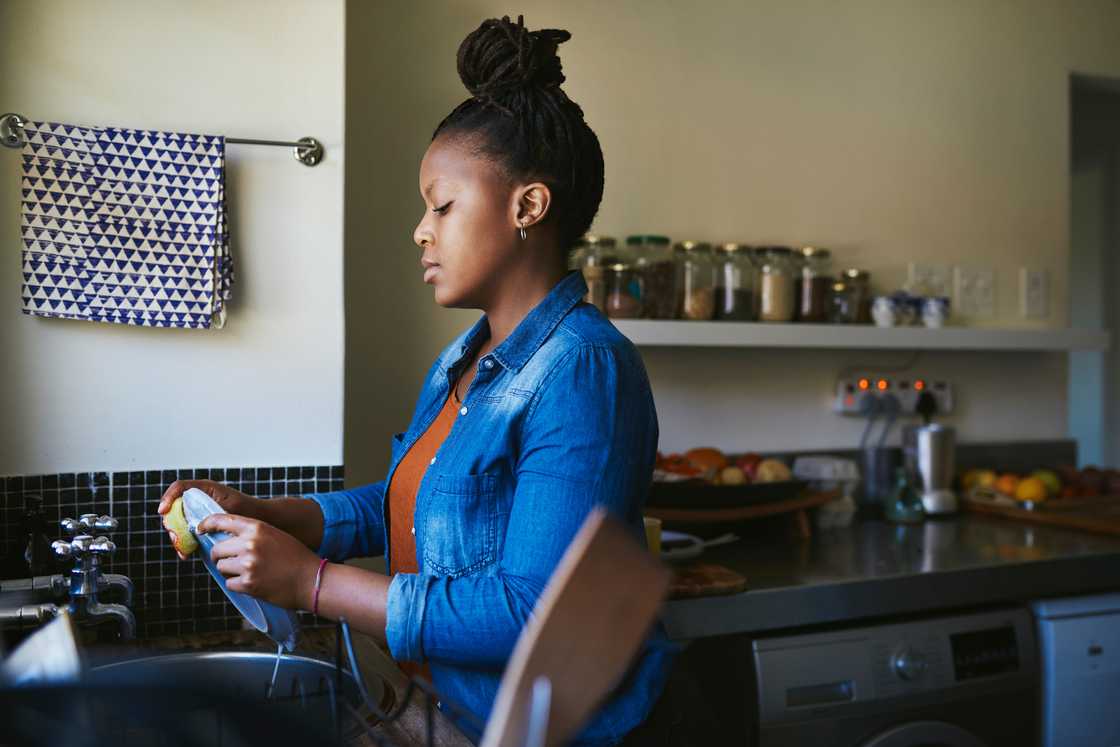
Source: Getty Images
But that night, as I washed the dishes, I finally admitted to myself — my marriage wasn't just broken, it was disappearing quietly, piece by piece, while everyone watched from afar.
I stopped calling after the third rejection. I couldn't take the polite coldness anymore.
Meanwhile, Nosipho — the same woman who had once been supported through her separation — posted photos of a family dinner on Facebook. There they were, all smiling, including Tumelo.
No one had told me there was a dinner.
That night, I sat on the floor beside my bed and cried quietly. The children were asleep, and the only sound in the house was the fan's hum.
For twelve years, I had believed I was part of this family. I had cooked for them, celebrated their birthdays, and sat by Tumelo’s mother’s hospital bed when she was sick.
But now, I realised — I was just the woman their son married. Nothing more.

Source: Getty Images
It took me weeks to accept the truth.
At first, I thought maybe it was just awkwardness — maybe they didn't know what to say or how to help. But when I saw Tumelo at church one Sunday, sitting with his mother and sister, my heart broke in a way I didn't think possible. They didn't even look my way.
I sat two rows behind them, holding Botlhale on my lap. When the service ended, Tumelo’s mother hugged someone else beside me and walked right past us.
I stood there frozen.
Botlhale tugged at my sleeve and whispered, "Grandma didn't see us?"
I wanted to lie, to say she hadn't noticed, but the truth burned in my throat.
"No, baby," I whispered. "She saw."
That was the moment everything became clear.

Source: Getty Images
Later that afternoon, I sat under the jacaranda tree in our yard, watching the children play in the dust. Their laughter filled the air, but inside me, everything was quiet. I kept replaying the morning — the way Tumelo’s mother’s eyes had brushed past me as if I were invisible.

Read also
She Meets Him at the Bagels — He Installs Spyware; She Finds a Studio and Reclaims Her Life
I realised I had spent years trying to earn love that was never offered freely.
The truth didn't come with anger this time. It came with a deep, exhausted peace. They had never accepted me — not really. Their kindness had been conditional, their smiles shallow. The moment Tumelo left, I lost whatever illusion of belonging I'd built.
I replayed all the years in my mind — every minor slight, every subtle exclusion, every joke brushed off as harmless. I had spent years trying to win people who were never willing to love me beyond convenience.
And now that I needed them, they had quietly chosen sides.

Source: Getty Images
Even when Tumelo and I started mediation sessions, his family still ignored me. Tumelo’s mother called him regularly, asking if he was "coping well," but never once did she call to ask how the children were.
When I mentioned it during one of our sessions, Tumelo said, "Maybe you're reading too much into it again."
I smiled bitterly. "You've been saying that for years, Tumelo. Maybe it's time you listen instead."
For the first time, he didn't argue. He just looked down.
As I watched the children sleep that night, something shifted inside me.
For years, I had been begging to belong — to his family, to a version of love that cost me my peace. But now, I was done begging.
I didn't need their acceptance to be whole. I only needed peace, stability, and people who saw me as more than a foreign wife in their son's story.

Source: Getty Images
Tumelo and I are still attending mediation sessions. I don't know where it will lead — maybe reconciliation, maybe final separation.
But I am not afraid of either outcome for the first time in years.
I've started rebuilding my own life, one piece at a time.
My neighbour, Lesedi, watches the children when I work late. The women at my local church in Soweto have become my second family. They pray with me, laugh with me, and treat my children like their own.
We've started small routines — Sunday pap and chakalaka after service, evening walks when the heat softens. The kids are smiling again.
Some evenings, when the yard is quiet and the smell of charcoal smoke drifts through the air, I sit on the steps and listen to the city hum. I think about how far I've come — from crying alone on the floor to finding laughter in the smallest moments.

Source: Getty Images
I joined the worship team last month, something I had always been too shy to do. My hands trembled the first time I sang, but people clapped and hugged me afterwards. For the first time in a long while, I felt seen again, not as someone's wife, but as Onalerona — a woman rediscovering her own strength.
One Sunday, the children and I passed by Tumelo’s mother’s yard. She was outside, chatting with Khanya. Our eyes met, and she looked away.
I greeted politely and kept walking. For once, it didn't sting. I realised I no longer needed her approval to breathe.
Sometimes, love doesn't come from where you expect it — and that's okay.
Tumelo has been more present lately. He comes by to visit the children, and sometimes stays for dinner. There's still tension, but also a fragile sense of civility.
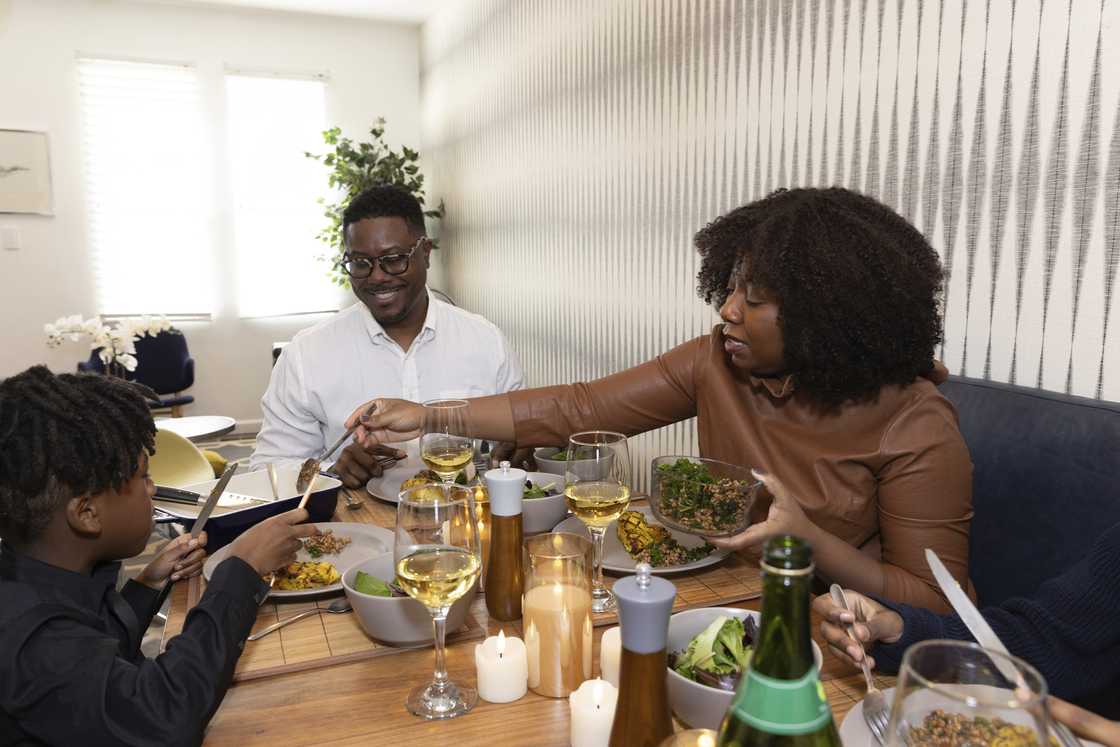
Source: Getty Images
A few days ago, he thanked me — genuinely — for taking care of the children so well. It wasn't much, but it felt like closure.
I told him quietly, "We'll always be family through them, but I'm learning not to hold on to what hurts."
He nodded, eyes lowered, and momentarily, I saw the man I once loved. But I also saw I could let him go and still be whole.
I've learned to let things be.
When I told my pastor’s wife about everything, she said gently, "Onalerona, sometimes God removes people so you can see clearly who were never meant to stay."
Her words stayed with me.
When I tuck my children in at night, I whisper a silent prayer of gratitude — not for the pain but the clarity it brought.
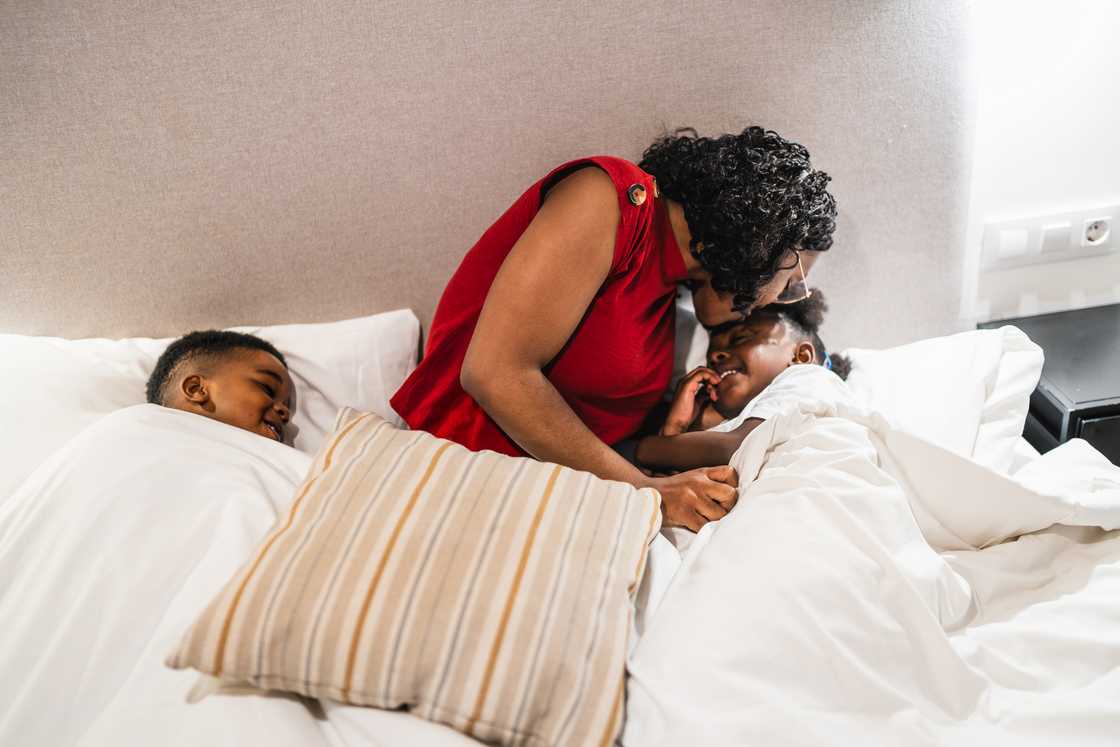
Source: Getty Images
Now I know that family isn't defined by marriage, names, or who sits at the same table. Family is built by love that stays when everything else falls apart.
Looking back, I see how desperately I tried to belong to people who were never willing to make space for me. I bent myself to fit into their world — laughed at jokes that hurt, swallowed words that burned, and convinced myself that acceptance would come if I just tried harder.
But love doesn't demand that kind of silence.
Real love, real family, sees you — flaws and all — and chooses you anyway.
When Tumelo left, I lost a marriage. But I also found myself. And though it still hurts sometimes, I'm learning to be grateful for that loss, because it stripped away illusions I'd carried for too long.
Now, I live differently. I take my children to the beach on Sundays, where we watch the waves crash and talk about new beginnings.

Source: Getty Images
I've started saving for a small business — a salon of my own — because I want them to see that strength can grow from heartbreak.
Sometimes, the most brutal truth becomes the seed of our freedom.
Every morning, when I look in the mirror, I remind myself that peace is a choice I make daily. I wake up daily, reminding myself I am enough — not because someone says so, but because I finally believe it.
If you're reading this and have ever felt like an outsider in your home, remember: you deserve a family that sees your worth without question. Sometimes, walking away from where you're not wanted is the bravest act of self-love.
So I ask myself — and maybe you should too — why chase belonging, when you can build it instead?
This story is inspired by the real experiences of our readers. We believe that every story carries a lesson that can bring light to others. To protect everyone’s privacy, our editors may change names, locations, and certain details while keeping the heart of the story true. Images are for illustration only. If you’d like to share your own experience, please contact us via email.
PAY ATTENTION: Follow Briefly News on Twitter and never miss the hottest topics! Find us at @brieflyza!
Source: YEN.com.gh










